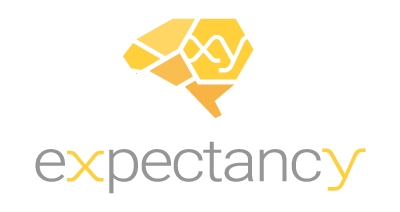Organizations often invest in learning management systems (LMS), that they later find aren’t quite what they had expected. Unfortunately, LMS platforms aren’t always what they are made out to be on a company’s website or in a demo. It can be really frustrating to find that the investment you made in an LMS isn’t meeting your organization’s needs or goals. Below, we outline common frustrations organizations face with their LMS platforms. Whether your organization is experiencing similar frustrations or is looking to invest in an mobile LMS for the first time, these points may serve as a good starting point for evaluating the LMS market.
Your LMS is Hard to Use
Whether you’re a program administrator or learner, it is discouraging when you can’t navigate your learning management system efficiently. No matter how cutting edge the LMS is marketed to be, it is useless if your learners and administrators can’t figure out how to navigate it efficiently. You deserve better than a poorly designed, non-intuitive platform that leaves you feeling helpless and confused. Consider how you want your learners and administrators to interact with your training program. You should look for a learning management system that is built with the user and administrator experience in mind.
Not Customizable to Your Needs
Often times, organizations come to realize that their learning management system doesn’t fit their learning goals. You may have chosen a one-size-fits-all platform that doesn’t allow for customization. It might not be that your LMS is bad, it might just be that it was meant for a different audience. Don’t settle for an LMS that is “close” to supporting your needs. When shopping around, look for an LMS that can be built from the ground up around your organization’s learning, functionality, reporting, and style needs.
Limited Insights
Many learning management systems lack built-in data reporting capabilities. How do you know if your training and development programs are working? Has this program been worth your employee’s time? Has it been worth the investment? To answer these questions, your organization needs an LMS that provides you with comprehensive data tracking and reporting capabilities. A traditional LMS manages content and only reports on how people access and score on learning content. For an organization to make well-informed decisions and understand their ROI, an LMS should include insights into employee development and performance in addition to traditional reports offered.
Not Mobile Friendly
Is your learning management system mobile friendly? You don’t want to limit your employee’s learning potential, so you shouldn’t limit when they can engage with learning materials. Mobile-enabled platforms eliminate scheduling conflicts and geographic boundaries. With mobile learning, learners can learn on the go: on their morning commute, lunch break, or plane rides.
People are moving back and forth between devices to get things done, and are more tethered to those devices than ever. Therefore, learning programs should be accessible on a variety of devices. In fact, Google has found that 47% of people use more than one type of device. 27% of people only use their smartphone, while only 14% use only their laptop.
Most LMS platforms do offer mobile access, but they tend to be slow, and often times, the content isn’t optimized for mobile devices. When content isn’t optimized for mobile, navigation is difficult and can discourage users from engaging on these devices. When shopping around for a new learning management system, look for a provider that prioritizes mobile learning and optimizes content to fit all screen sizes.
Poor Customer Support
When you encounter an issue with your learning management system, your software provider should be ready to support you. It can be frustrating when you’re in this position, and can’t get a hold of a knowledgeable customer service representative. Beware, that some companies are known to outsource their customer service to “specialists” that are unfamiliar with the product and merely read from a script. Again, you deserve better than this! When shopping around for an LMS, ask providers to be upfront about the support they provide. Look for a personable company, that desires to create a lasting relationship with your organization. Define your own support expectations and be sure to present these to potential providers, to ensure that next time, you receive the customer support you need.
Expensive for What It Provides
A new learning management system can be quite the investment. Not only is there the cost of the software itself, but there is the cost of implementation and potentially the negative loss in overall productivity, if the LMS is not what you thought it would be. If you’re not getting what you expected out of your investment or are being hit with unexpected costs for additional functionalities, it is time to look for other options.
Whether your organization is looking to invest in your first LMS, or looking for alternative options to your current LMS, these frustrations can help guide your search. Have an honest conversation about your needs and wants with software providers, and gauge whether they are prepared to meet your expectations.


